Please read the update before jumping to any conclusions. 🙂
I was chatting with some folks the other day and the question was raised about if we had seen a decline in our website activity. Since the vast majority of my website traffic comes from Google searches, I figured the obvious thing to do was to look at what is happening on Google Trends in terms of search terms. That way we were not focusing on the popularity of a specific site, but on searches in general. That resulted in this rather alarming graph showing a trend over the last 20 years.
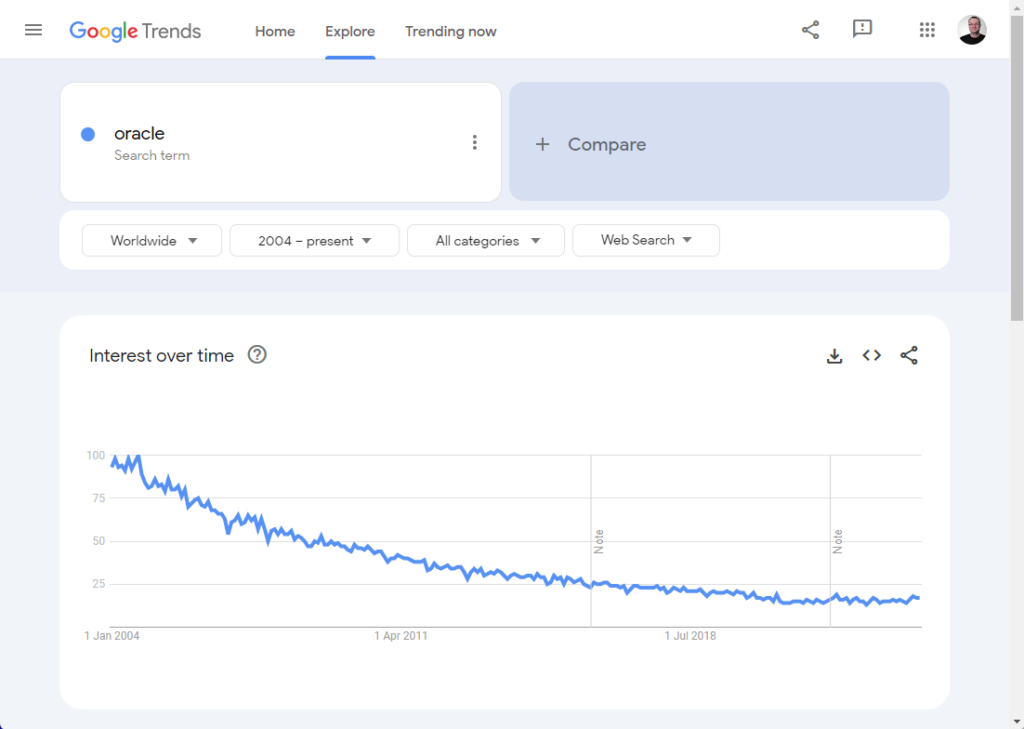
I guess we all thought this decline was at the expense of another engine, so our obvious next thought was to compare against the other relational database engines. One of the guys suggested we also compare the word “database” as well, just to see. This is the resulting graph.
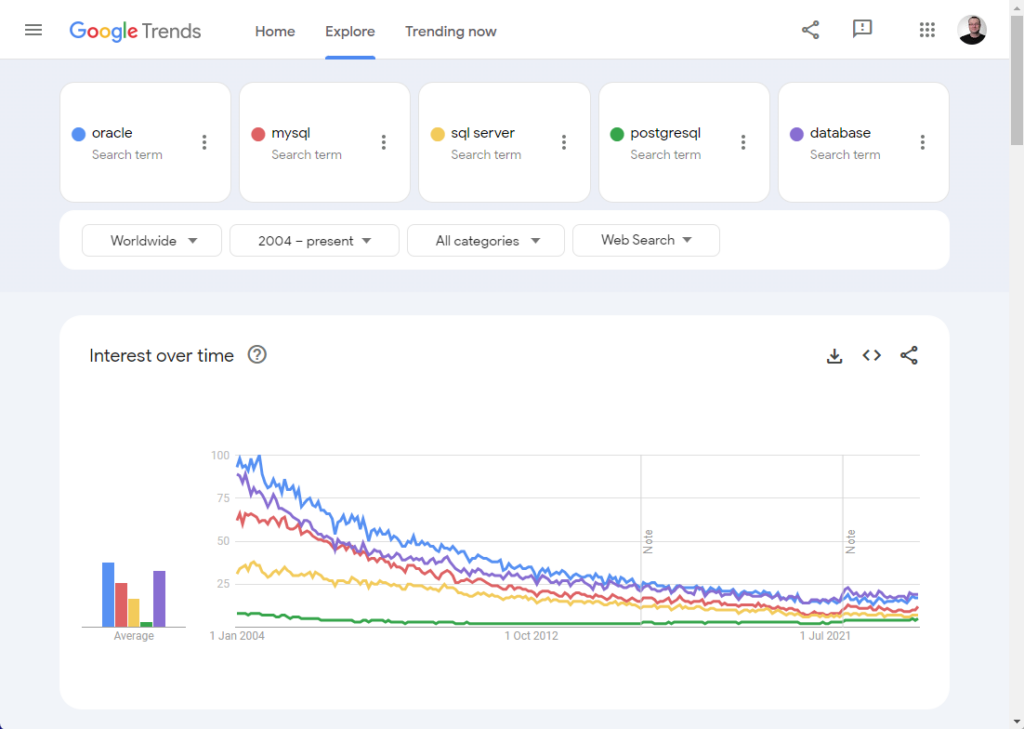
It should be noted we tried variations on “sql server” and “postgresql”, but they didn’t affect the searches. Feel free to try for yourself. 🙂
So the decline in searches was not restricted to Oracle. You may notice this is related to “All Categories” of search, and the word “oracle” is not specific to the database, so I tried in “Computers & Electronics”, and we got a similar result.
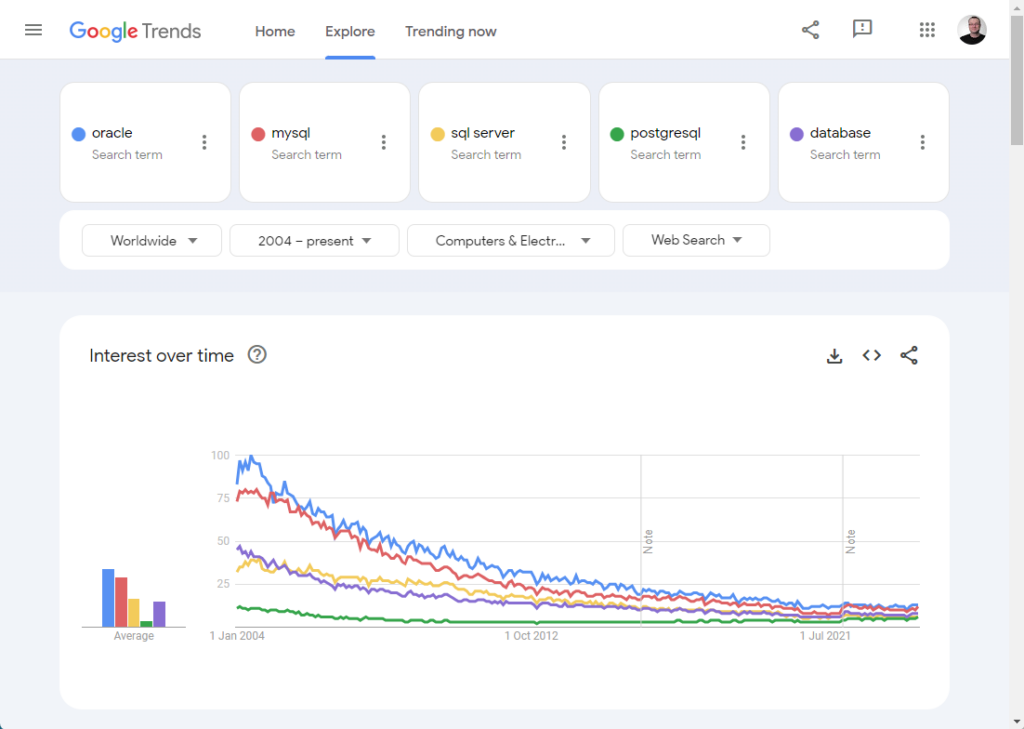
For subsequent searches I switched back to “All Categories”.
If we switch to the last 5 years, things seem to have levelled off somewhat.
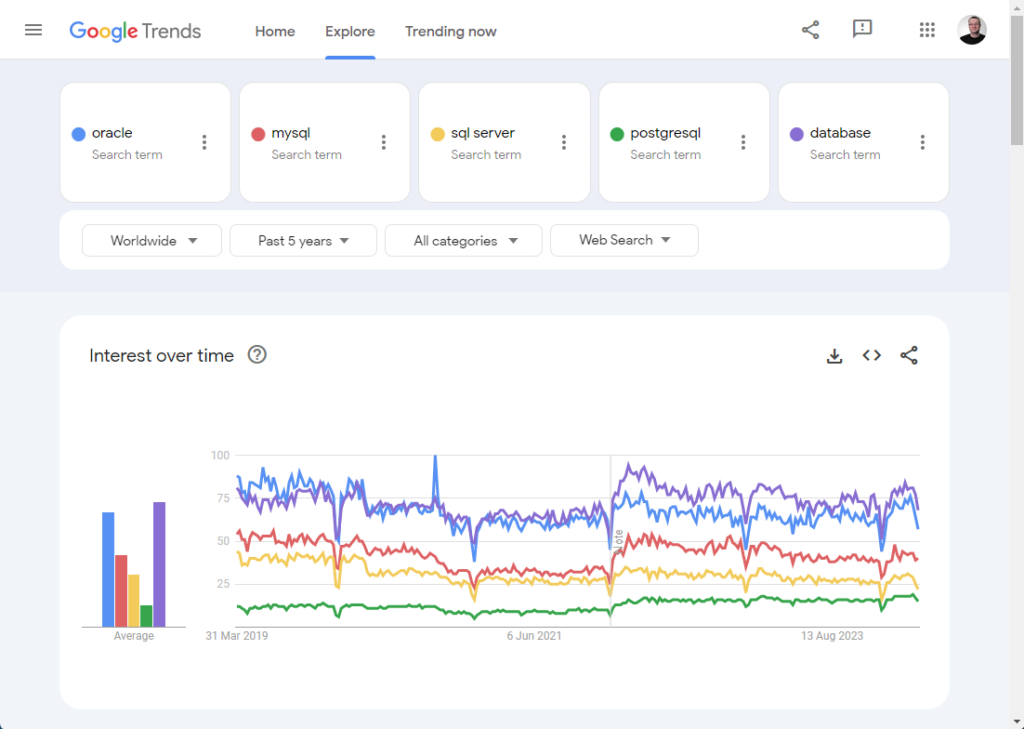
So the next question was if NoSQL databases were eating into the relational database market. A straight search looked interesting.
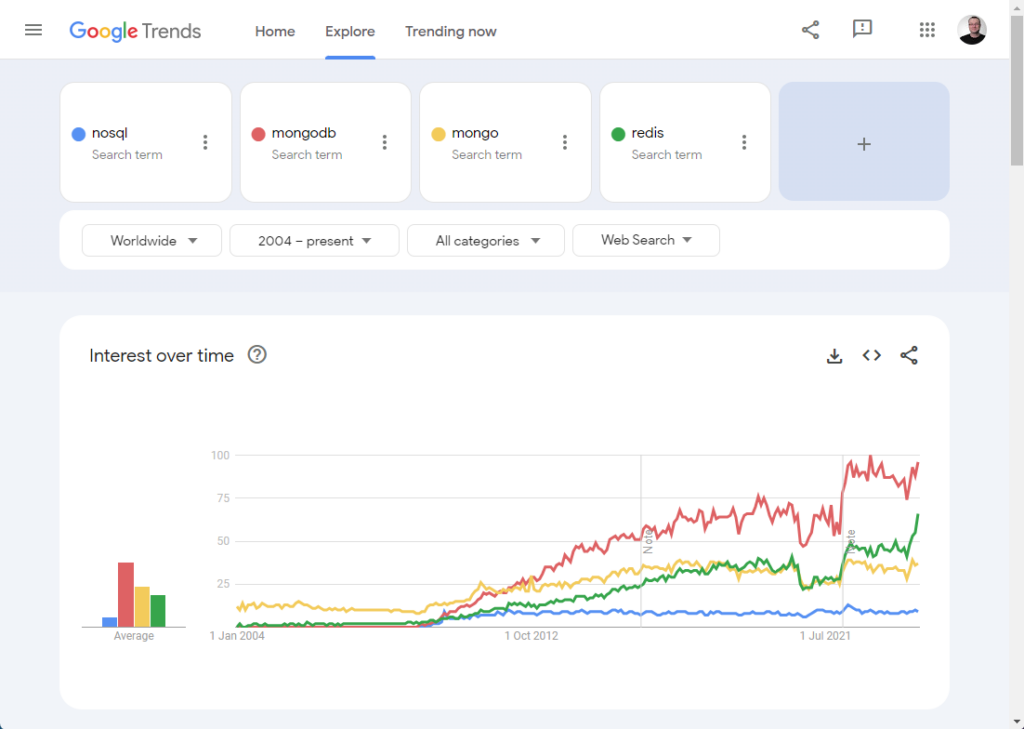
But what happens when we add Oracle back into the mix. Does the rise in popularity of some NoSQL databases account for the drop in searches for relational databases?
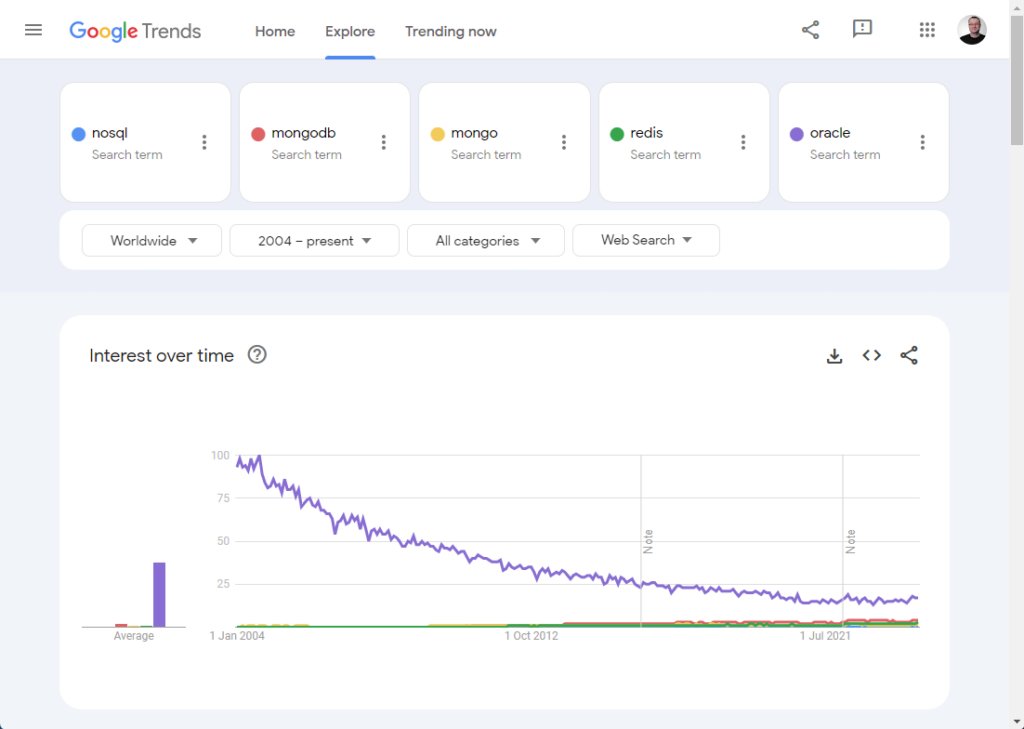
It doesn’t look like it. The gains in some NoSQL databases are insignificant compared to the reductions in searches for relational databases.
So we are left with a question. Why is there a drop off in searches for relational databases, when there doesn’t seem to be a corresponding uptick in alternatives?
Update : So what is really going on?
The graphs are not absolute search numbers, but normalised compared to the total Google searches that happened. Back in the day only geeks were Googling, so tech searches were a comparatively high percentage. Now everyone is Googling, the proportion of tech searches is much lower compared to the random stuff. Check out the FAQ about Google Trends data. So in our case, the trend over time of an individual term is not so important as the comparison between two search terms over time, as both should be affected in a similar way by the normalisation…

What we can see is over time the searches for different relational engines have got closer. If we are using the number of searches as a proxy for popularity, then it seems it’s a much closer game now than before.
Cheers
Tim…
PS. Thanks to the folks that pointed me in the right direction about Google Trends.
PPS. I noticed the switch from 12c to 19c searches over recent years.
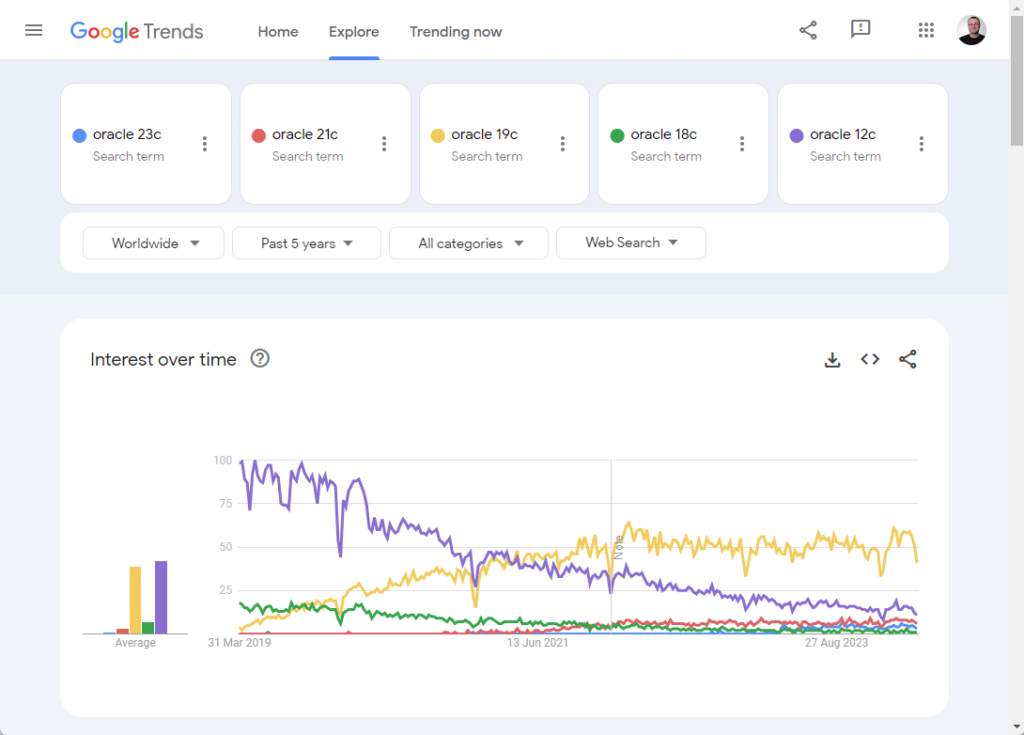
Tim,
If you read FAQ about Google Trends then you’ll see it normalizes the data to the whole dataset. A decline in some search term means that the relative percentage of the searches in that category has declined. It doesn’t give you absolute numbers, and as such, it is impossible to make a reasonable comparison of how many Oracle related searches in total were done . In fact, it’s quite possible to have a situation where a total number of searches in a category can grow but Google Trends will show you a decline because it is now a smaller part relatively to all searches.
Timur: I’ve just been having a discussion about this and added an update to the post. 🙂
Hi Tim, I liked you review about google trends and the terms we have been used in database world, this helped me to get some background about how the market and the direction of the things are going. Very interesting – thank you for sharing it.